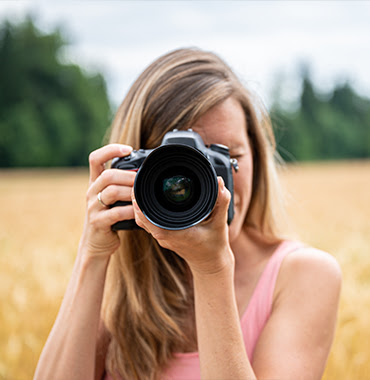
A camera is a device that captures and records visual images, either electronically or chemically. Cameras have become an essential tool in many areas of life, including art, science, and commerce.
There are many different types of cameras, each with its own unique features and capabilities. Some of the most common types of cameras include digital cameras, DSLR cameras, mirrorless cameras, point-and-shoot cameras, and smartphone cameras.
Digital cameras capture images electronically and store them on a memory card, while DSLR and mirrorless cameras use interchangeable lenses and offer more advanced features such as manual controls, fast autofocus, and high-quality image sensors. Point-and-shoot cameras are designed for easy use and convenience, while smartphone cameras have become increasingly popular due to their convenience and advanced features.
Cameras are used for a variety of purposes, including capturing memories, documenting events, creating art, and scientific research. They have also become an important tool in many professions, including journalism, advertising, and filmmaking.
As technology advances, cameras continue to evolve and improve, with new features and capabilities being added all the time. Whether you're a professional photographer or just a casual user, there is a camera out there that will meet your needs and help you capture the world around you.
Here are 5 new words related to cameras:
- Bokeh - a photographic effect achieved by intentionally blurring parts of an image for artistic purposes, often in the background.
- Aperture - the opening in a camera lens that allows light to enter and determines the depth of field and amount of light that reaches the camera sensor.
- ISO - a camera setting that controls the camera's sensitivity to light, affecting the brightness and graininess of the image.
- Shutter speed - the amount of time the camera's shutter stays open, affecting how motion is captured in an image.
- Chromatic aberration - an optical distortion that results in color fringing around the edges of objects in an image, caused by the lens not focusing all colors to the same point.
- How has the introduction of digital cameras and smartphone cameras affected the photography industry?
- What are some ethical considerations that photographers should keep in mind when taking photos, especially in public places?
- How has social media impacted the way people take and share photos? Is it more about the art or the social currency?
- Do you think the rise of self-portraits (i.e. selfies) is a positive or negative trend in photography?
- How have advancements in camera technology changed the way we perceive reality? Can we still trust what we see in photos and videos?
Post a Comment